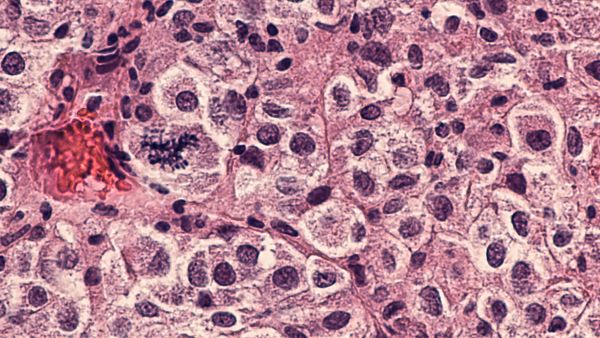Positive results for mRNA vaccine in melanoma patients
Posted: 15 December 2023 | Caroline Peachey (European Pharmaceutical Review) | No comments yet
A personalised mRNA cancer vaccine in combination with MSD’s Keytruda cut the risk of cancer recurrence by almost half in melanoma patients.


Moderna and MSD have announced follow-up data from the Phase IIb clinical trial evaluating cancer vaccine mRNA-4157 (V940) in combination with MSD’s Keytruda in patients with resected high-risk melanoma.
The randomised study, KEYNOTE-942, evaluated the treatment in patients with high-risk stage III/IV melanoma.
Analysis shows that after three years, treatment with mRNA-4157 (V940) in combination with checkpoint inhibitor Keytruda reduced the risk of recurrence or death by 49 percent compared with Keytruda alone. The combined treatment also reduced the risk of distant metastasis or death by 62 percent compared to just Keytruda.
The study marks “the first demonstration of efficacy for an investigational mRNA cancer treatment in a randomised clinical trial”
The study marks “the first demonstration of efficacy for an investigational mRNA cancer treatment in a randomised clinical trial and the first combination therapy to show a significant benefit over Keytruda alone in adjuvant melanoma,” according to Kyle Holen, Moderna’s Senior Vice President and Head of Development, Therapeutics and Oncology.
Adverse events observed with mRNA-4157 in KEYNOTE-942 remain consistent with those previously reported. The most common adverse events were fatigue, injection site pain and chills.
The companies previously presented data from KEYNOTE-942/mRNA-4157-P201, with a follow-up of approximately two years, at the American Association for Cancer Research (AACR) Annual Meeting, and the American Society of Clinical Oncology (ASCO) Annual Meeting. Data from the primary analysis has been submitted for publication in a peer-reviewed journal.
mRNA-4157 plus Keytruda
mRNA-4157 (V940) is being jointly developed by Moderna and MSD. It is an mRNA-based individualised neoantigen therapy, designed and produced based on the unique mutational signature of the DNA sequence of the patient’s tumour. When administered in the body, the RNA-encoded neoantigen sequences are endogenously translated and undergo natural cellular antigen processing and presentation, a key step in adaptive immunity.
Keytruda is an immunotherapy that works by increasing the ability of the body’s immune system to help detect and fight tumour cells.
Moderna and MSD have initiated Phase III trials evaluating mRNA-4157 (V940) in combination with Keytruda in patients with resected high-risk (Stage IIB-IV) melanoma (INTerpath-001) and non-small cell lung cancer (INTerpath-002). Both trials are enrolling patients. The companies also plan to expand the development programme to additional tumour types.
Dr Marjorie Green, senior vice president and head of late-stage oncology, global clinical development, Merck Research Laboratories commented: “We are pleased to see the results from these planned analyses on recurrence-free survival for V940 (mRNA-4157) and look forward to working with Moderna in expanding our clinical development programme for the individualised neoantigen therapy.”
Related topics
Anti-Cancer Therapeutics, Biopharmaceuticals, Clinical Trials, Drug Development, Immunotherapy, Vaccines









